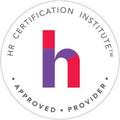Future of HR: Insights from Amazon's Vice President of HR, Ian Wilson
The Next Practices Weekly call series has become a well-attended and wide-ranging discussion for HR leaders each Thursday at 11am ET / 8am PT. On this week's call, i4cp Senior Research Analysts Katheryn Brekken and Tom Stone facilitated a conversation with special guest Ian Wilson, VP of HR at Amazon. Here are some highlights from the call:
- Wilson's career has included several years at Honeywell, over 13 years at Microsoft, and the now the past six years at Amazon, including specifically Amazon Web Services.
- Wilson noted that the best way to formulate your organizations people agenda is by working backward from your business needs from you --their spoken or unspoken needs -- as the best HR agenda are context specific.
- The opposite of this approach is what he calls "Random Acts of HR," which are generic and might be fine in the abstract and even well executed, but if they aren't tied closely the specific context and business needs of your organization, then they aren't the right programs to leverage.
- Further, he suggested fighting against dogmatism, and instead constantly challenging your assumptions and letting go of the things that don't make sense in the current context you find yourself in. What worked well before, in the same organization, even one or two quarters ago, might not work going forward.
- Wilson said that one of the key aspects of Amazon's culture is the view that "It is always Day One." He said it took him a while to grasp this when he first joined. But in short, it means that every single day, you should look at the data, the anecdotes, etc., and make the best decision for your customers -- and then do the same thing tomorrow. This fights against the pull of having to do things the way they have been done in the past.
- Wilson shared Amazon's 16 Workplace Leadership Principles . When asked how employees can remember so many, he noted that people have no problem remembering 16 or more friends. And importantly, these are practices and behaviors that you are living all the time, they are participatory in various contexts, so they are easier to remember and not like country or state capitals that you were forced to just memorize in school.
- The leadership principles are integrated across the Amazon employee talent lifecycle, from recruiting, to performance management, to succession, and more. For instance, they used in the Amazon interview process -- and Wilson encouraged people to apply to Amazon and experience that process, to see the rigorous approach that Amazon takes in this regard.
- We asked the following poll question of participants: "How has your organization's culture changed since the onset of the pandemic?"
- 15% Become much healthier
- 53% Become slightly healthier
- 9% No change
- 22% Become slightly more toxic
- 1% Become very toxic
- Wilson said he believes that "Culture is caught, not taught". What is key are the interpersonal interactions every day, not formal training on values and culture.
- Wilson also noted that when people try to preserve or protect their culture, it rarely works out. You have to be constantly cultivating, strengthening, building it. Be on offense, not defense.
- Brekken shared "The Seven Habits of Very Healthy Cultures" that were found in i4cp's Culture Fitness study:
- More flexible work arrangements
- A learning mindset
- Boards care about culture
- Leaders lead by example
- Leaders held accountable for employee outcomes
- Leaders regularly communicate values
- Poor behavior is addressed immediately
- We asked the following poll question of participants: "To what extent does your organization clearly communicate its values to employees?"
- 2% No extent
- 13% Low extent
- 37% Moderate extent
- 33% High extent
- 16% Very high extent
- Regarding Generative AI, Wilson said that he thinks of it as the application of AI to unstructured data. He tied this to how culture is expressed in an organization -- that is just about as unstructured of a dataset as you could imagine. So there is great opportunity to use GenAI to assist in measuring and improving organization cultures--stressing that we are in the very early days of this new technology.
- When asked about what qualities he looks for when hiring HR professionals, Wilson said he needs people who are great business people -- those who understand how to apply our craft in a business context. Specific to Amazon’s culture? They look for builders. People who can see opportunities and go get something done. Don’t just observe, make something happen. And he said he wants people who love to embrace transformation, who love to be on the cutting edge, not just of technology, but of people science too.
Links to resources shared on the call:
- Upcoming i4cp virtual events
- i4cp's Next Practices Now conference
- Information on i4cp Membership
- Amazon's 16 Workplace Leadership Principles
- i4cp’s Culture Fitness Report (members only)
- i4cp’s Culture Fitness Brief (for everyone)
- i4cp article: Why HR Needs AI Related Roles and Skills








